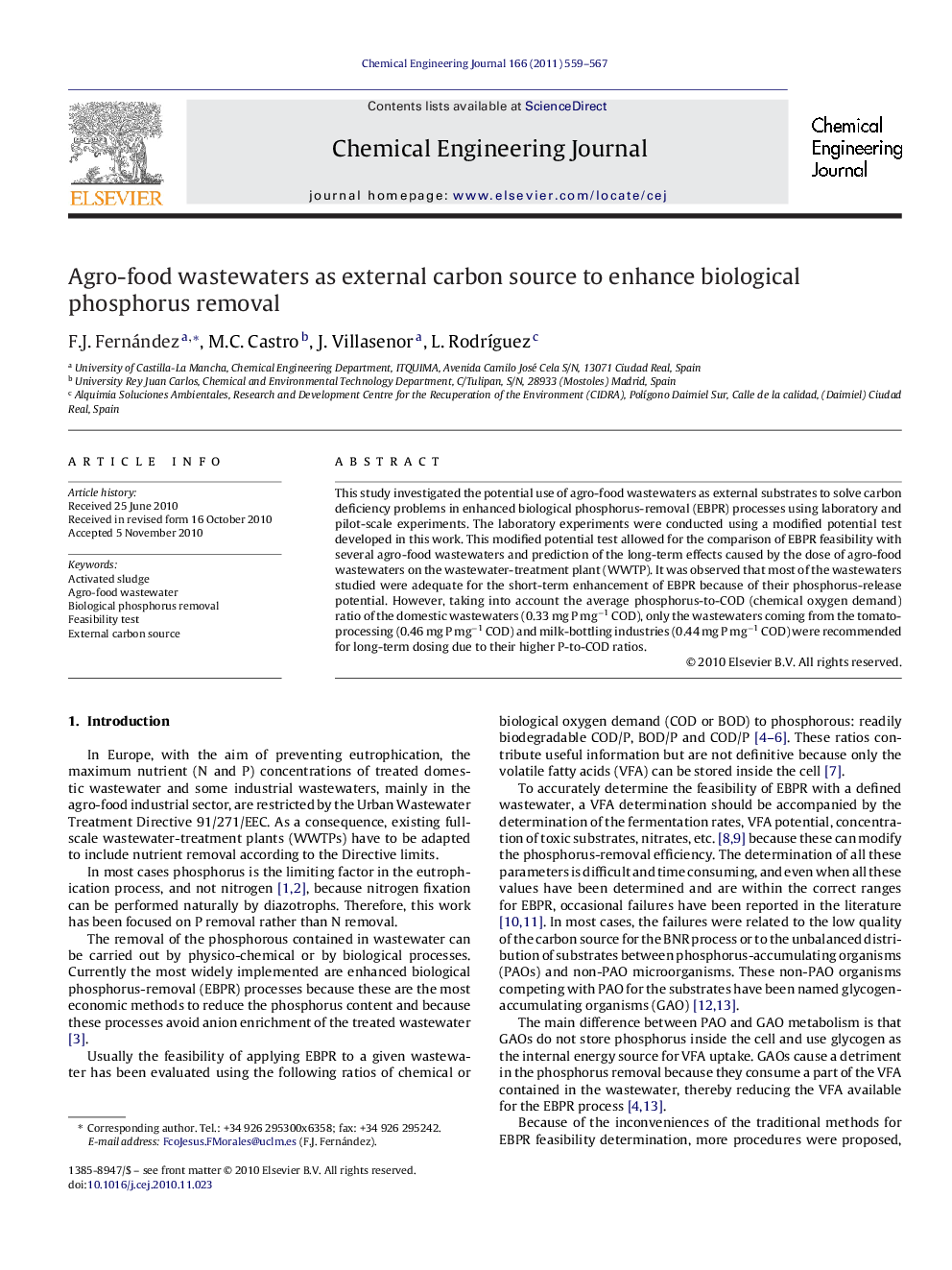| Article ID | Journal | Published Year | Pages | File Type |
|---|---|---|---|---|
| 10260883 | Chemical Engineering Journal | 2011 | 9 Pages |
Abstract
This study investigated the potential use of agro-food wastewaters as external substrates to solve carbon deficiency problems in enhanced biological phosphorus-removal (EBPR) processes using laboratory and pilot-scale experiments. The laboratory experiments were conducted using a modified potential test developed in this work. This modified potential test allowed for the comparison of EBPR feasibility with several agro-food wastewaters and prediction of the long-term effects caused by the dose of agro-food wastewaters on the wastewater-treatment plant (WWTP). It was observed that most of the wastewaters studied were adequate for the short-term enhancement of EBPR because of their phosphorus-release potential. However, taking into account the average phosphorus-to-COD (chemical oxygen demand) ratio of the domestic wastewaters (0.33Â mg PÂ mgâ1 COD), only the wastewaters coming from the tomato-processing (0.46Â mg PÂ mgâ1 COD) and milk-bottling industries (0.44Â mg PÂ mgâ1 COD) were recommended for long-term dosing due to their higher P-to-COD ratios.
Related Topics
Physical Sciences and Engineering
Chemical Engineering
Chemical Engineering (General)
Authors
F.J. Fernández, M.C. Castro, J. Villasenor, L. RodrÃguez,
